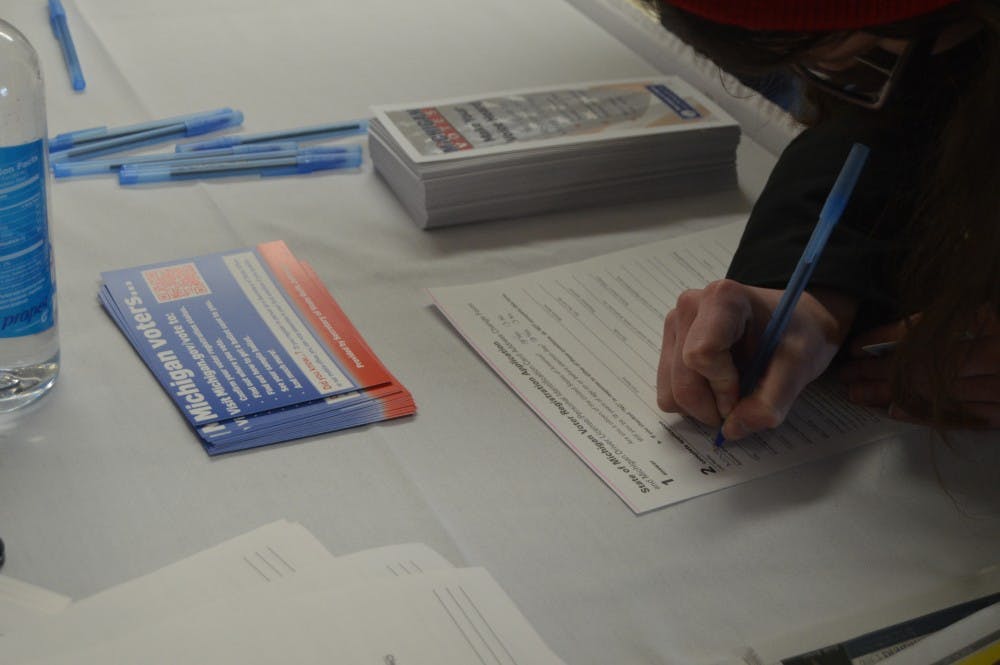Students register to vote on campus
Norma J. Bailey learned the importance of the right to vote as a child after her grandparents escaped the Pogrom in Russia to the United States.
As a child, her parents took her with them to the voting polls to teach her that it was her right and responsibility as a citizen to vote. As soon as she turned 18, she registered.
Bailey is now a co-adviser for Central Michigan University’s Register, Educate, Vote Central Michigan University (REVCMU), a non-partisan organization created to help students register to vote and help educate them about current issues.
“ I had a distinct impression since a child that voting was important and that I was going to do it. I think that comes from the fact my grandparents literally fled the Pogroms in Russia to have that right,” she said. “It was never even a question in my mind because it’s your right and responsibility.”
REVCMU helped students register to vote Tuesday with the Mobile Secretary of State while also teaching them the importance of youth voters at the Bovee University Center Rotunda. About 88 students registered.
“Our whole goal is to get young people to understand what it took to be able to vote and why it’s important today,” Bailey said. “If you vote, you’re saying this is a person who represents my views. If you don’t vote, you have no voice. If you do vote, you have some voice.”
From 10 a.m and noon, “Selma: Bridge to Ballot” was shown, First Lady Elizabeth Ross shared her firsthand experience of the Selma march and students shared their prize-winning speeches on the importance of voting today.
From 1 p.m. to 3 p.m., registered student organizations hosted informational tables on the impact of voting on their issues.
“We are teaching students the voter registration process because, to put it simply, it’s very confusing,” said co-advisor Laura Frey. “The ultimate goal of CMU students voting in the November election is 100 percent CMU students voting.”
Students learned about how the privilege of voting has been secured throughout history and how it continues to be challenged today.
Originally only white, property-owning 21 year old men could vote until the nineteenth amendment was passed in 1920, giving women the right to vote. The Voting Rights Act signed in 1965 broke down legal barriers preventing African Americans from exercising their voting right under the fifteenth amendment.
“It’s important to know the history because of the process it took and the people that fought and died for the right to vote. Youth was critical in that process, especially in the South and Selma, and youth will be critical now,” Frey said. “There’s a lot of apathy and frustration and that concerns me that it’s an access of voice that isn’t being heard because the group isn’t exercising it the way they could.”
North Branch freshman Kelci Gormley said she gets angry when students claim their votes don’t make a difference.
To her, it’s better to have your voice heard, even if it’s only with one vote, she said.
“It exercises your right as an American to be heard, and if you’re not voting for something then you’re voting for nothing,” Gormley said.





